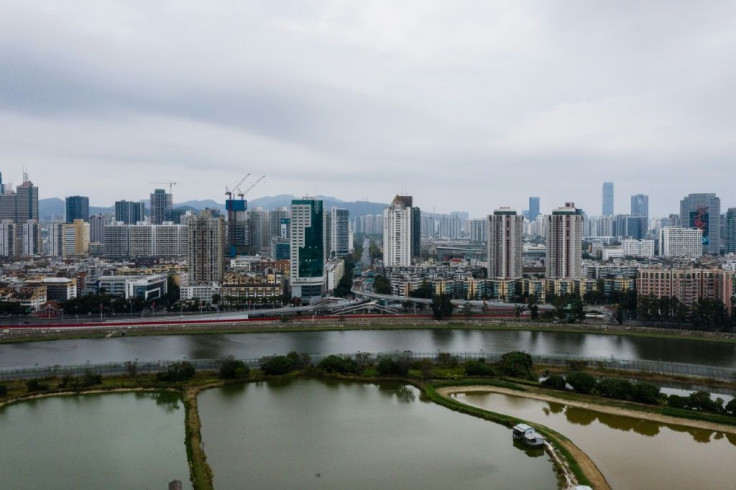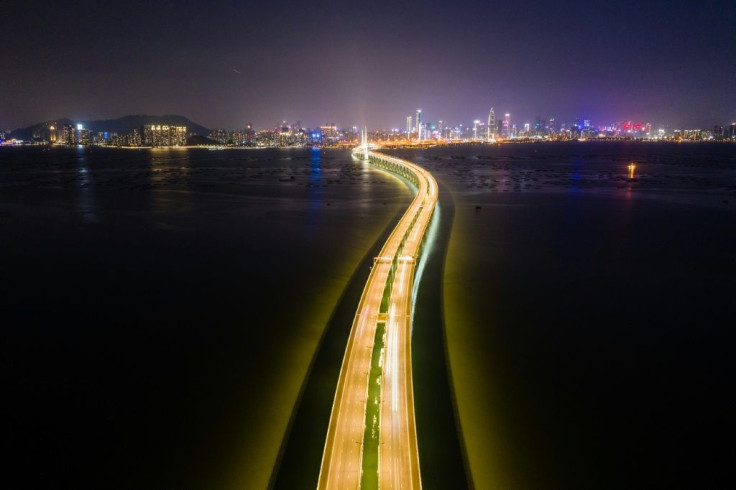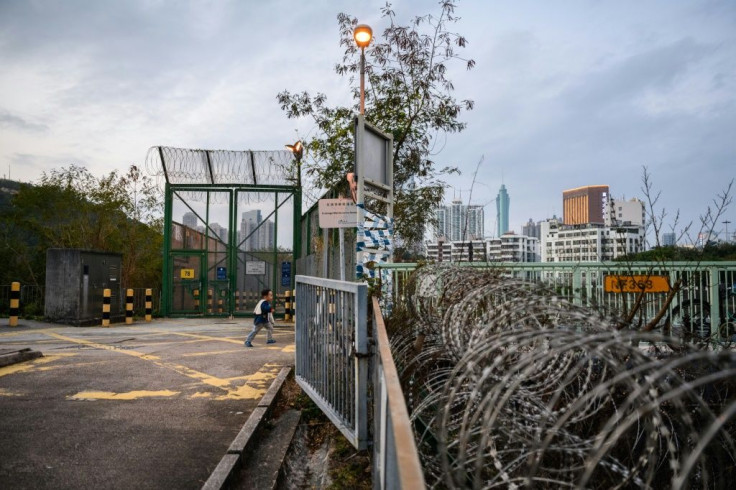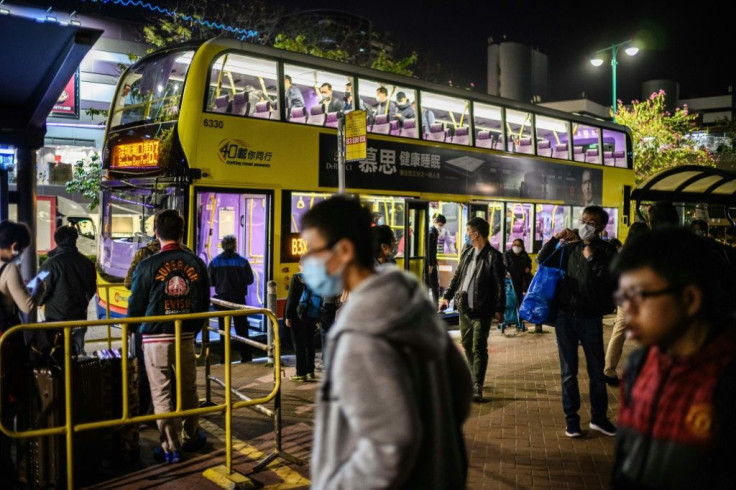Family Or Job? Tough Decisions For Hong Kong Border Commuters
Waiting at a bus stop on Hong Kong's border with mainland China, Billy Yiu was preparing to say goodbye to his wife and baby, unsure when he might see them again.
The 40-year-old Hong Konger works in the semi-autonomous financial hub and commutes daily from neighbouring Shenzhen, where rents are far cheaper.
But the journey will be all but impossible for the foreseeable future.

In a bid to halt the spread of a deadly new coronavirus, Hong Kong on Saturday began placing anyone crossing from the mainland under a mandatory 14-day quarantine.
So on Thursday night Yiu was making a final trip back to Shenzhen to see his family before returning to Hong Kong where he would stay with his parents.
"I don't know how long this is going to last but what can we do?" he told AFP.
His wife had opted to stay in Shenzhen with their baby.

"It's not easy for her. But we have a domestic helper and we will make video calls," he said.
Tens of thousands of people are making similarly tough decisions.

Under the "one country, two systems" model, Hong Kong is a part of China but maintains its civil liberties and free market economy. The border acts as a de facto international boundary.
Usually about 660,000 people cross between the two sides each day, 17 percent of them Hong Kongers who live in mainland China.
But as the virus has spread, the 14 checkpoints have gradually been reduced to just three -- two bridges and the airport.
With mandatory quarantining now in place, Hong Kong authorities expect cross-border travel to slow to a trickle.

Those waiting at the bus stop on Thursday night were a typical cross-section of people who live on both sides of the border.
William Tang, 61, works in Hong Kong's finance industry and lives in Shenzhen.
Tang said he had been talking to his bosses about possible working arrangements or taking a long holiday.
"If we can't agree on something, maybe that's it," he said, referring to the worst case scenario of losing his job.
Secondary school student Sam Yau arrived on a coach from Shenzhen with his elder brother, mother and two suitcases.
"My brother and I go to school in Hong Kong so we will have to live in a hotel until we find an apartment available for rent," Yau said.
Their mother planned to return to Shenzhen while their father, who works in Hong Kong, would stay with them.
"I am going to miss my mother," Yau said.
Skyscrapers in Shenzhen have been lit up with scrolling slogans.
"People's life and health come first," reads one.
"We are determined to win the battle against the epidemic," says another.
Yiu said he held no ill feelings about the government's decision to bring in compulsory quarantining.
"Border control is a very complicated decision," he added.
"But I think the advantages still surpass the disadvantages at this moment given we do not have any other way to stop the virus."
© Copyright AFP 2024. All rights reserved.







